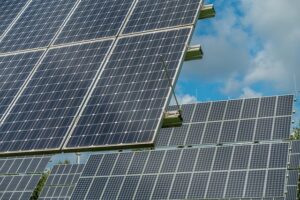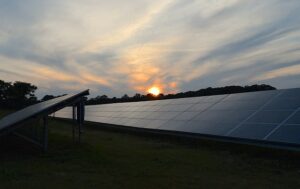
From Sunlight to Savings: The Financial Benefits of Solar Panels
In an era where sustainable living is becoming increasingly crucial, solar energy stands out as one of the most viable solutions for both the planet and your pocket. Solar panels not only reduce the carbon footprint but also provide significant financial benefits for homeowners and businesses alike. In this article, we will explore the various ways in which solar panels can result in substantial savings, from reducing utility bills to increasing property value and beyond.
The Basics of Solar Energy
Solar energy is derived from sunlight, which is collected through solar panels, typically installed on the roofs of buildings. These panels convert sunlight into electricity through photovoltaic cells. When homeowners or businesses utilize solar energy, they can produce their own electricity, relying less on traditional energy sources that are often more costly.
Reducing Your Electricity Bills
One of the most immediate financial benefits of installing solar panels is the reduction in monthly electricity bills. By generating your own electricity, you minimize the amount of power you need to purchase from your local utility company. Depending on the size of your solar system and your energy consumption, it is possible to eliminate your electricity bill entirely.
Moreover, many homeowners experience significant savings even if they do not become entirely energy-independent. A solar energy system can produce enough electricity to cover a substantial portion of your energy needs, leading to noticeable reductions in monthly expenses. This means more money in your pocket to allocate for other necessities or luxuries.
Government Incentives and Tax Benefits
In many countries, governments offer lucrative incentives to encourage the adoption of renewable energy. These incentives can take several forms, including tax credits, rebates, and grants. For instance, in the United States, the federal government offers a tax credit that allows homeowners to deduct a significant percentage of the cost of their solar panel system from their federal taxes. This incentive can substantially reduce the initial financial burden associated with purchasing and installing solar panels.
Additionally, some states and local governments have their own programs that further incentivize solar adoption. This can include property tax exemptions for solar installations, allowing homeowners to avoid increased property taxes related to their home’s enhanced value from solar systems.
Net Metering: Selling Excess Energy
Another financial benefit of solar panels is the ability to participate in net metering programs. If your solar panels produce more electricity than you consume, many utility companies offer the option to sell that excess energy back to the grid. This means that when your solar system generates more power, you can effectively earn money through credits or cash from your utility provider.
The specifics of net metering can vary depending on local laws and utility policies, but in many cases, homeowners can accumulate credits during peak production months (like summer) that can be used to offset future energy bills during months of lower production (like winter). This greatly enhances the financial viability of solar systems and encourages further investment in renewable energy technologies.
Increasing Property Value
Investing in solar panels can also significantly increase the market value of your home. Studies have shown that homes equipped with solar energy systems tend to sell at higher prices compared to similar homes without solar. This is likely due to the prospect of reduced energy costs, as potential buyers recognize the long-term savings that come with solar energy.
Buying a home with a solar system can also make a property more attractive on the real estate market, as eco-conscious buyers often prioritize homes that come equipped with sustainability features. Furthermore, homes with solar panels can sell faster, providing immediate financial benefits to sellers.
Low Maintenance Costs
Once installed, solar panels require relatively low maintenance, which translates to further long-term savings. Most solar panel systems come with warranties that can last 20-25 years, and the technology is designed to withstand harsh weather conditions with minimal degradation over time.
The only regular upkeep typically involves cleaning the panels and ensuring they are clear of debris, which can often be done easily by the homeowner. Unlike traditional energy sources that may require ongoing fuel purchases and maintenance costs, solar panels continue to generate electricity with minimal operating expenses, thereby maximizing your investment over time.
Financing Options and Affordability
Many homeowners are deterred by the upfront costs of solar installations. However, there are numerous financing options available that can make solar energy more accessible. These include solar loans, leasing options, and power purchase agreements (PPAs).
Solar loans allow homeowners to borrow money to pay for solar panels, which can be paid back over time through monthly payments that are often lower than the savings on electricity bills. Leasing involves renting the solar system from a provider, and in many cases, the homeowner can still realize savings without a large initial investment. Meanwhile, PPAs allow homeowners to pay for the energy produced by the system at a predetermined rate, often lower than utility pricing.
Environmental Impact and Corporate Responsibility
While the primary focus of this article is financial benefits, it is worth noting the broader impact solar panels have on personal finances through environmental sustainability. Many consumers are increasingly concerned about the environmental footprint of their energy consumption. By investing in solar energy, individuals can fulfill their sense of corporate and personal responsibility, positively impacting future generations.
Moreover, sustainability initiatives can enhance brand reputation, particularly for businesses. Companies that operate with environmentally-friendly practices, including the use of solar energy, often attract finer customers who value sustainability, potentially leading to increased revenue and profitability.
Conclusion: The Future is Bright
Considering the substantial financial benefits of solar panels—from reducing electricity bills and improving property value to government incentives and net metering—it’s clear that investing in solar energy can lead to significant savings over time. By taking advantage of available financing options, homeowners and businesses alike can contribute to a sustainable future while enjoying enhanced financial security and stability. As technology continues to evolve, the potential for solar energy to lead to further innovations in cost reduction and efficiency remains bright.
In the broader context of rising energy costs and climate change concerns, geothermal energy provides a sustainable solution that enhances not only our financial well-being but also the health of our planet for generations to come.



